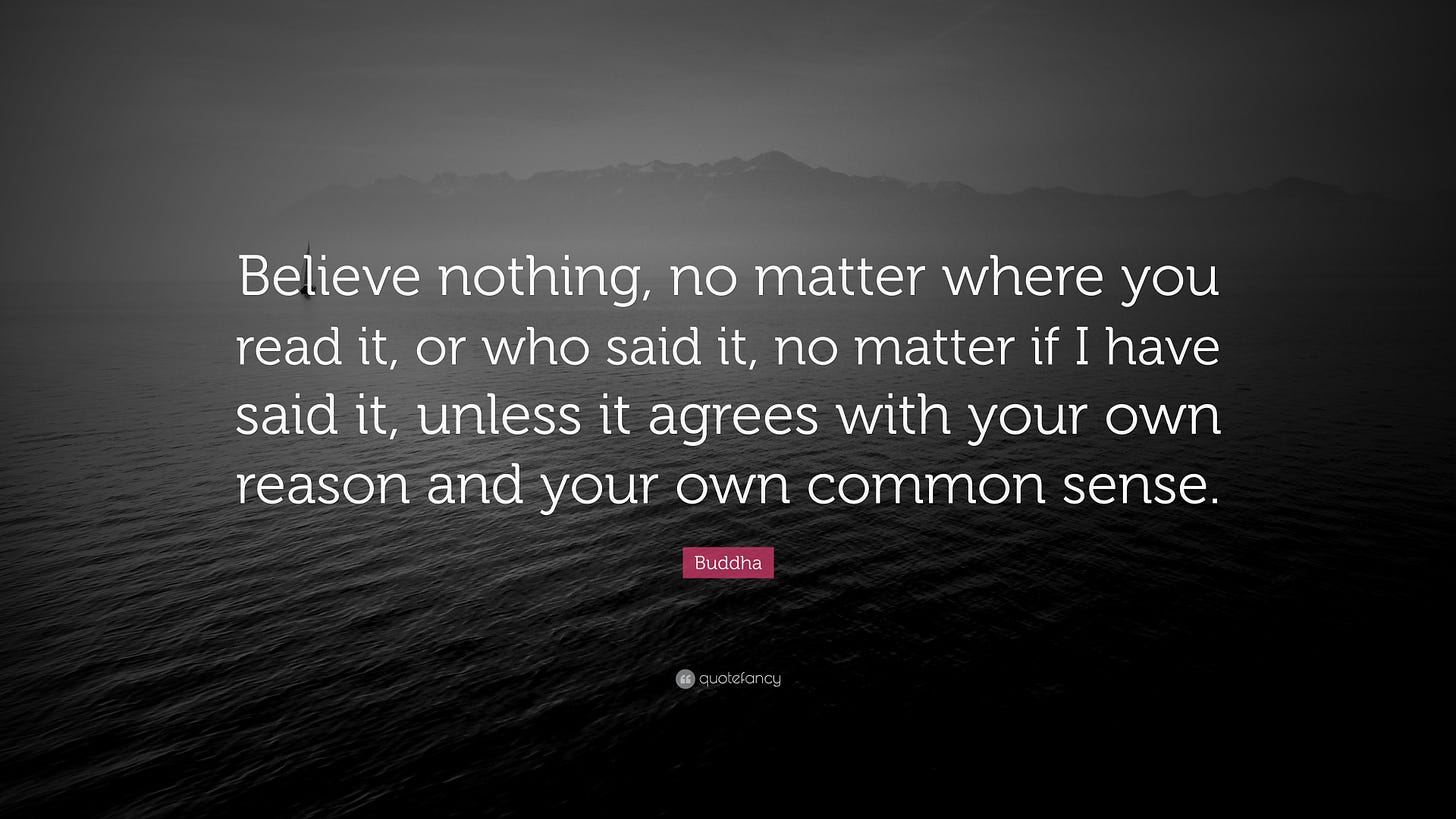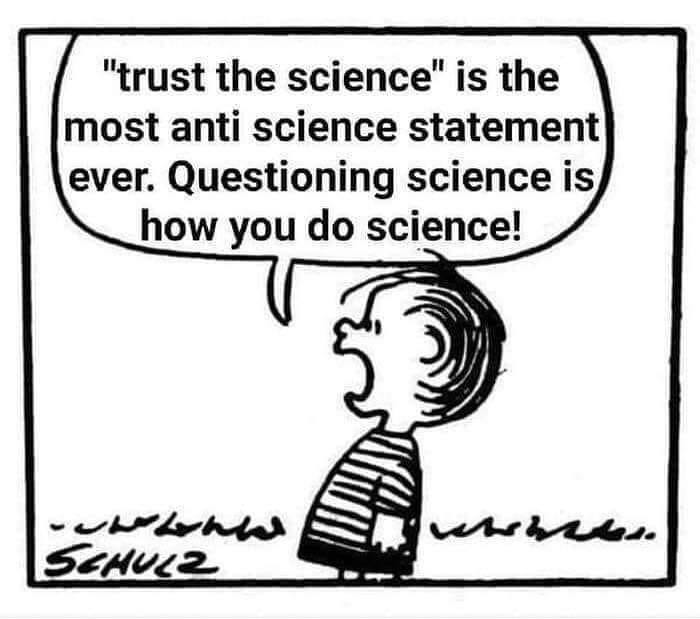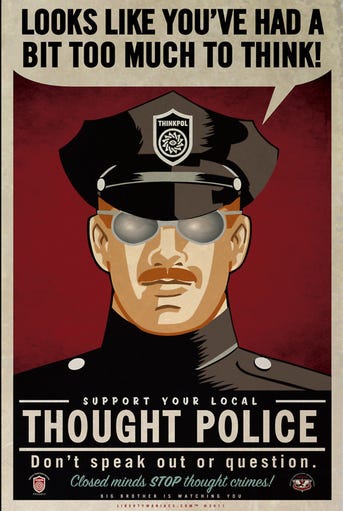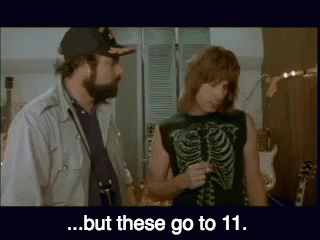If you’re alive and reading this, you’ve probably undergone some painful schism over the past two years.
I know I have.
In the fall of 2020 I wanted to introduce my new partner to an old friend, a fellow writer. This friend and I had spent many years poring over and critiquing each other’s manuscripts, sitting at the pub talking endlessly about writing, our favorite authors, the beauty of the Pacific Northwest, and everything else under the Sun. When I regretfully had to move away for work, he gave me a parting plaque that said: “One loyal friend is worth a thousand relatives.”
I was looking forward to the reunion. The three of us met at the old pub, discovered to our disappointment it was closed that day, so just chit-chatted out front. As almost every conversation did around those times, it immediately turned to all matters COVID. After a few minutes it became obvious that we were not on the same page, and with the most sneering, contemptuous tone I’ve ever heard this person use, he said: “Oh. So, you’re skeptics,”… as if skeptics were the lowest form of life ever to crawl out from under a feces-covered rock.
Now, this was deeply hurtful to me, on at least three levels.
One, I despise labelling. A conversation is an exchange of ideas, a meeting of inquisitive minds, a recognition of the individuality, complexity and nuance of another person’s thoughts. Labelling is the opposite: it’s a dismissal. Translated, it means: I don’t have to listen to a further thing you, the person actually in front of me, has to say, since you’re just one of Them. And I need not discuss anything ever with one of Them, since I understand everything there is to know about Them and listening to one word They have to say is not worth my time or effort.
Two, this person and I had spent hundreds of hours talking to one another, even disagreeing with each other about many things, and done so in love and friendship. We had spent many more hundreds of hours in each other’s manuscripts, going through them in excruciating detail. If you’ve ever done this with someone you know what it is to connect your thoughts to another human being. In terms of sheer connection hours, this was probably one person on the planet whose mind I had spent the most time in, and he in mine--and I include intimate partners in that calculation. And suddenly, none of this mattered, as though he had been trained to identify “skeptics” and shut them down, years of friendship be damned. A hurtful blow, to say the least.
And three…
YOU’RE GODDAMN RIGHT I’M A SKEPTIC! So should we all be.
When did skeptic become a thing we sneered in contempt?
Skepticism: never more maligned, never more necessary.
Skepticism has taken on the unfortunate connotation of negativity, or being pessimistic.
Actually, it’s nothing of the sort.
Skepticism comes from the Greek “skepsis”, which means “inquiry”.
In ancient Greece there were a bunch of smart philosophers (enough of them to be identified as a “school”) who pointed out a simple fact: often people believe things which don’t stand up to simple inquiry.
Someone makes a knowledge claim, and whilst everyone is nodding in agreement, the skeptic says: “Prove it.”
Skepticism, therefore, is nothing negative. It’s the act of shining the light of inquiry on knowledge claims--making the knower account for what he or she claims to know.
Sure, this probably seems negative if you’re on the receiving end—no one likes their knowledge claims to be challenged. (Just ask Socrates.) But actually the skeptic is doing you, and everyone else, an enormous service by making you justify your beliefs.
We have ample evidence all around us (and, in moments of honesty, upon internal reflection), that people believe badly.
How humans actually form beliefs:
· Someone you like/trust/revere uttered the claim, so you believe it.
· Someone you feel unqualified to challenge (i.e., an “authority”) uttered the claim, so you believe it.
· The claim agrees with your more general worldview, belief system, or politics, so you believe it.
· You read a single article, opinion piece, or saw a news piece on it, and formed a belief on the spot with no further questioning.
· You heard the view repeated so often it became “true by repetition”, so you believe it.
· The adoption of the belief has some social benefit or secondary gain: it smooths things over with people, doesn’t upset the family, herd, or the tribe, gives you a sense of belonging, gets you attention, increases your sense of importance or significance, or your sense of superiority, involves some financial gain, or prevents some financial loss, or keeps you safe from harm from oppressive gangs or authorities… so you believe it (or at least profess to believe it).
· The adoption of the belief gives you some psychological benefit: it allays a deep-seated fear or gives you a feeling of empowerment or certainty or well-being about something, without which you would be terrified, confused, uncertain, or uncomfortable… so you believe it.
Now, a true pessimist would say: that’s it. End of the road. No reason to carry the analysis any further. Humans are inherently idiotic creatures, forever doomed to believe bad things for stupid reasons.
And I say, if that were true, then how could we possibly know it?
How could we know someone was “wrong” about anything? What would “wrong” even mean? If it were true that humans were incapable of bettering their beliefs, then we would never be capable of encountering a “bad” belief. In fact, we would have no concept of “bad believing”. We would automatically sponge up whatever we heard as the dogmatic, gospel truth and never question it, nor have any disagreement with anyone, ever. There would not ever have been two schools of thought about anything, and we would all believe exactly what the first humans believed (and probably still be living in caves and treetops).
The fact that we do question things when we hear them, and form disagreements, and that ideas change, is proof that we are capable of the act of inquiry, i.e., questioning what we hear, i.e., the opposite of blind acceptance.
Enter the mindset which engages in inquiry as a matter of principle: skepticism.
Skepticism is the attempt, however lifelong and ill-fated the project might be, to overcome bad believing.
Being a skeptic means being a guardian at the gates of one’s own mind. It means taking this attitude to knowledge claims: nothing gets through without an appearance in the court of my reasoning mind. Nothing gets accepted blindly, without me first shining the light of reason on it. Nothing.
Does this mean skeptics are infallible and incapable of bad reasoning or bad beliefs?
Of course not.
Just as a very physically fit person is capable of laziness, or eating a meal they know they shouldn’t, or of abandoning the project of fitness altogether, so too is a skeptic capable of mental laziness or eating a mental “meal” they know they shouldn’t, or abandoning the effort and just becoming mentally lazy over time. Also some people are clearly more fit than others. But that doesn’t affect the project, the commitment, of striving for fitness (in this case, mental fitness), as a principle one carries through one’s life.
To continue the analogy: if skepticism is “negative” at all, then so too is the commitment to being physically fit. Both are “negative” in this sense: hating the status quo, despising laziness, and not blindly accepting what one eats (or hears) as one’s physical (or mental) fate.
Of course, some people do sneer at others for striving to be fit.
“How dare you strive to improve your physical existence? You should just blindly drift like the rest of us and accept whatever fate your body has in store for you.”
Yeah… thanks, but no thanks.
Skepticism in the Age of Pandemia
These past two years have been a near continuous onslaught of: “Accept it, because we say so.”
Follow the Experts. Trust the Science™. Do Not Question. Disagreement is Disinformation.
These are synonyms for: “Turn your mind off and accept it. Even if it seems nonsensical. Even if it contradicts everything you know to be true. Even if intelligent people disagree with us. Even if the evidence says otherwise. Because we say so.”
A skeptic says: “Sorry, pal. Your say-so isn’t good enough.”
Remember when we used to say: “Don’t believe everything you hear”?
These days the reigning epistemology seems to be: “Believe everything we tell you to believe, vilify whoever we tell you to, go hysterically insane whenever we want you to.”
I understand the concept of mass psychosis. Of course populations can fall under the sway of fear and bad ideas, and we have many historical examples.
Plus, you know… just look around.
But I confess to being a little mystified when it comes to intelligent people that I know personally. I do not understand their blind acceptance of pharmaceutical corporations, for example, and the government agencies which are clearly subservient to them.
I may never understand it.
We are now swimming in an ocean of untruths. There’s hardly an aspect to anything COVID-related where the truth hasn’t been manipulated, distorted, politicized, misrepresented, mismeasured, or misunderstood. The tests are bullshit, the death counts are bullshit, the media coverage is bullshit, the lockdowns are bullshit, the masks are bullshit, the origin story is bullshit, the vaccines are bullshit… and we have all the data to prove it.
(And, in almost every case, a late admission from a public health official acknowledging the bullshit.)
And yet, we have otherwise intelligent people all around us who unquestioningly swallow bullshit.
And beg for another helping.
By now, we should be familiar with the Oops Factor. “Oops, we got it wrong, our bad.” This is the case for skepticism: experts get things wrong, all the time. (And usually only admit to the mistake when not doing so would result in some kind of financial, legal repercussions, or reputation loss).
When experts get things wrong, they typically do not discover this themselves. Usually, their mistakes are brought to light by people who challenge them, even by people outside their field, or who do not possess their accreditation. This is a good thing.
It should now be obvious: we can be led wildly astray by so-called experts who believe badly. Blind faith in experts is never warranted.
I’m not an “expert” on anything (except maybe miraculously whipping up a cup of coffee in the morning when I have no right to be conscious yet). And yet, as a skeptic, what am I supposed to do when confronted with blatant evidence that some narrative I’m hearing is false?
Am I supposed to ignore the obvious lab origins of the virus?
Am I supposed to ignore the fraudulent way PCR tests were being used to inflate case numbers and ramp up fear?
Am I supposed to ignore mountains of data showing the vaccines are failing?
This entire “pandemic” has revealed how every institution we’re supposed to trust and believe in (government, media, and corporations) not only does not have the public’s interest at heart, but actively seeks to manipulate that public trust for its own agenda.
In a healthy mind, in a healthy society, this should trigger skepticism.
But nowadays, when a skeptic presents such a sentiment they are confronted, almost as a reflex, with two fairly common (and I think, puerile) objections: 1. “You’re a denier!” or 2. “You’re a conspiracy theorist!”
These are blatant attempts at labelling, for all the reasons I mentioned above. You label someone, you cease having to listen to them, or deal with their arguments.
“Denier” of course gets its sophistical force from “Holocaust denier.” So if you are a “denier” of something you are so willfully ignorant that you refuse to acknowledge the existence of a horrible historical event that wiped out millions of lives.
So, disagreeing with me = you are a “denier” = you are a evil and ignorant person. Neat trick. Also, pretty obvious . Anyone above about a ten-year-old mentality can see you palming the cards.
I’m not a COVID denier. I’m a media/corporation/government skeptic. Do you understand the difference? I don’t automatically believe what these institutions want me to believe.
No amount of playground name-calling will change that.
“Conspiracy theorist” is another laughable attempt at straw manning someone’s arguments. It goes something like: If you question the media, you probably believe in all sorts of crazy ideas without evidence, like the Illuminati, and 5G mind control, and alien pod people occupying key positions in government, etc. Therefore, you should believe the media.
It’s true that a massive overarching conspiracy with all the villains playing their perfect part in a master plan, with all the moving parts working like a well-oiled machine, is an implausible myth.
But this does not mean there is no such thing as bad actors with bad agendas, and it would be astonishingly naïve of us to think so.
It’s not necessary for a conspiracy to be “grand”. It just has to be key people in key positions doing bad things, out of sight of the general public, serving ends that the public would not allow them to get away with if they knew. The rest of the agenda is carried out by innocently-mistaken actors, including the unwitting public, thinking they are doing the right thing by going along with the bad actors.
Perverse and misguided incentives have ruled the day. This alone should occasion skepticism with regard to anything public-health related.
Even if we assume no bad actors (and we have to turn a blind eye to a lot of damning evidence to do so), let’s just think about innocent mistakes or wrongheadedness.
At your most charitable, given what you know about governments and corporations and media, do you think they just get everything right, first guess?
You know it’s not true. You know it on a visceral level. And you know they will never admit their error or walk it back, unless forced by public backlash. This alone occasions skepticism and critical examination. When you couple this with the fact that every attempt at such criticism has been met with censorship and suppression, I think you‘re left with no other conclusion than something deeply fucking sinister is going on.
You also know that there’s no such thing as “unbiased media”. The hint of politicization of an issue should turn your skeptical settings to eleven. This is why alternate sources of information, citizen journalists, and dissenting voices are so important: they act as a check on captured media.
To dismiss something that a dissenting voice has to say as a “conspiracy” because it doesn’t agree with the media is just as ludicrous as a government official dismissing something the media says as a “conspiracy” if it doesn’t agree with government.
These institutions are supposed to function as checks on one another, otherwise the truth becomes whatever they say it is. (Which, hmm… do you think that might be their exact goal?)
Skepticism toward pharmaceutical companies used to be normal. We’ve even had a host of movies from The Fugitive all the way up to present-day Ozark which portrayed pharmaceutical CEOs as villains, who do things like rush products to market with inadequate safety measures, or commit fraud, or place profits over lives. We’re in the midst of an opioid epidemic which has taken millions of lives from us, all caused by pharmaceutical villainy. And yet, we are widely distributing products across the planet, injecting them into every arm we can, made by the most criminally-fined corporations in history. Corporations who do not want us examining their safety trial data for 75 years??
How can anyone blindly trust that these products are safe and wonderful? How are these not the most scrutinized and skepticism-deserving organizations in history?
COVID is a real illness, but I’m also convinced it is an opportunity for bad actors, elites, and power-lusters to manipulate public behavior to serve their interests and enact their holy edicts. And by and large, it has worked. Leaving some of us (the skeptical) ostracized, vilified, and forced to fight for liberties, humanity, and a return to basic sanity.
I was already a media/government/corporation skeptic before the pandemic. Everything in the past two years has done nothing but confirm it.
The case for pandemic skepticism, I believe, is now overwhelming. The public have been lied to by the CDC, the WHO, the FDA. These are clearly captured agencies. Doctors have been prevented from practicing medicine. Scientists have been prevented from speaking out. Censorship and fear and profiteering have been the rules of the day.
The only line of defense against all of this?
Turn your skepticism to eleven, and don’t apologize for it.
Stay tuned for Part II: How to turn your skepticism to eleven, and how to be a skeptic in a hostile society.










What a brilliant essay, James! (I plan to reread it, next time reading all the articles you embedded within the current one.)
Our age absolutely demands that we all be skeptics. But I'm afraid everything you wrote would be completely lost on a Covid Cult true believer. Those rabid, sick souls live in an impermeably closed epistemological universe which admits of no questioning of the propaganda they are continually fed, and which they eagerly ingest and embody. Their minds are rotten. I think there's no hope that they can ever be reached. Everyone in my family, except for me, is among that cohort.
Oh, great; Another person posting the facts, then waiting for "Daddy-Government" to prove what a Caring Parent he is, not act to save the lives of children. Just what we need.
1) Politicians are exempt from zero laws in zero nations. 2) It IS illegal to a) mandate untested products, B) coerce or intimidate anyone OR their children to have them injected into them, C) as the articles of impeachment against Trump reminded us, take private $ while in public office (for OBVIOUS REASONS: like the ones you're all whining about right now) & D) give corporations "legal" (they aren't) protections from the harms done by their products.
So you & the hundreds of sites out there also reporting on this have FAR more than enough people on board with ending the mandates than even your governments could block or dismiss (especially as the public, once they see thousands of others on board with this would support it) & yet I can't PAY any of you hypocrites & cowards to even discuss joining in on taking those legal, non-violent measures.
But that's not what you want. You want Daddy to show He Cares. You cowards fantasize about that happening via the agency of whining because that's how Adoring Children appeal to their Daddies. Here, we're dealing with lobbyists.
How tf is WHINING going to cause LOBBYISTS to turn into your Desired Surrogate-Daddies?
& until this DOES work, you're all going to wait for "someone" always meaning someone ELSE to act.
It has to be someone else. And they have to not implicate Daddy-Government in this. Our Beliefs that 'Government' = a Caring Parent are threatened, & far more important to any of you than children's lives. & you'll all prove this by NOT attempting to use these legal, non-violent options to save them.